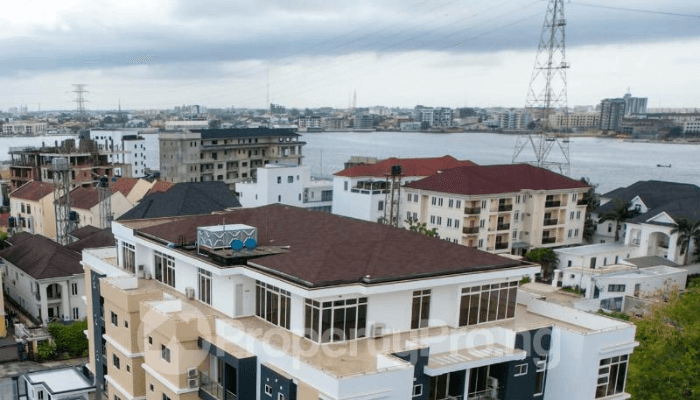The housing crisis in Nigeria is intensifying, with cities such as Lagos, Abuja, Ibadan, and Kano witnessing a 20 percent annual rise in housing demand due to rapid population growth and urbanization.
Nigeria’s swift urbanization rate has propelled 53.9 percent of the nation’s estimated 200 million population into urban areas, leaving over 125 million people grappling with limited housing options.
The situation is particularly critical in Lagos, where the state’s deputy governor, Obafemi Hazmat, revealed that approximately 6,000 people migrate to Lagos daily from rural areas, with about half of them staying without any identifiable residence.
This relentless influx is exacerbating an already dire housing shortage in the state, underscoring the broader challenges facing Nigeria’s urban centers.
Renowned economist Bismarck Rewane recently highlighted the alarming growth of Nigeria’s housing deficit, which has expanded by nearly 300 percent over the last two decades.

In 1991, the deficit stood at seven million units but surged to 14 million by 2012 and further ballooned to 28 million by 2023. According to the World Bank, closing this gap would require the construction of 700,000 new housing units annually—a goal far from being met.
Rewane pointed out that since 2018, Nigeria’s urbanization rate has surpassed the 50 percent mark, indicating that more than half of the country’s population now resides in urban areas.
However, this transition has not been accompanied by adequate housing development, resulting in a widening deficit. He attributed the housing crisis to a lack of affordable housing options, poorly planned urbanization, skyrocketing land and material costs, environmental degradation, and resource strain caused by unregulated urban sprawl.
At the Annual Real Estate Summit hosted by UPDC Plc, Rewane identified several structural barriers hampering the growth of Nigeria’s housing and real estate sector. These include complex land title transfer processes, a shallow financial sector, and a bureaucratic judiciary that is slow and often unreliable.
Additionally, escalating building material prices, fragmented and expensive land markets, high mortgage interest rates, and inflationary pressures are compounding the challenges.
Rewane noted that Nigeria’s homeownership rate lags significantly behind its peers, standing at just 25-30 percent compared to 80 percent in Indonesia, 60 percent in South Africa, and 47-50 percent in Ghana. He attributed this disparity to Nigeria’s high urban housing costs and persistent housing deficit.
While Indonesia benefits from cultural preferences and rural housing trends, South Africa’s government-subsidized housing programs and Ghana’s incremental rural building initiatives have helped boost homeownership rates.
The real estate sector’s underperformance is also evident in its growth figures, with a dismal 0.75 percent growth rate recorded in Q2 2024. Rewane emphasized that inflation has not only driven up construction material costs but also eroded disposable income, reducing the demand for housing and commercial spaces. Furthermore, a weak naira has increased the cost of imported construction materials and equipment, while high borrowing costs have limited access to affordable financing for both developers and prospective homeowners.
Economist Biodun Adedipe, CEO of B. Adedipe and Associates Limited, echoed these concerns, adding that Nigeria’s ongoing economic reforms have further worsened the housing crisis. High interest rates driven by the elevated cost of funds, exorbitant construction costs, and low mortgage penetration have made housing unaffordable for many Nigerians.
Despite these challenges, there are glimpses of hope for the sector. Adedipe highlighted the potential benefits of tax reforms, which could stimulate growth in the real estate market. Ayo Ibaru, CEO of Northcourt Real Estate, agreed, noting that tax exemptions on commercial real estate provide developers with greater flexibility in pricing and enable them to offer concessions to tenants.
Looking ahead to 2025, Ibaru projected positive developments in the sector, particularly in areas such as land-banking, warehousing, hospitality, logistics, and residential projects. However, he cautioned developers against overbuilding, stressing the importance of strategic planning to align supply with demand.
As Nigeria grapples with the challenges of urbanization, addressing the housing deficit will require a multi-faceted approach that combines effective urban planning, affordable financing options, infrastructure development, and policies that prioritize the needs of low- and middle-income households. Without these measures, the nation’s housing crisis is likely to worsen, placing further strain on its urban centers and vulnerable populations.



